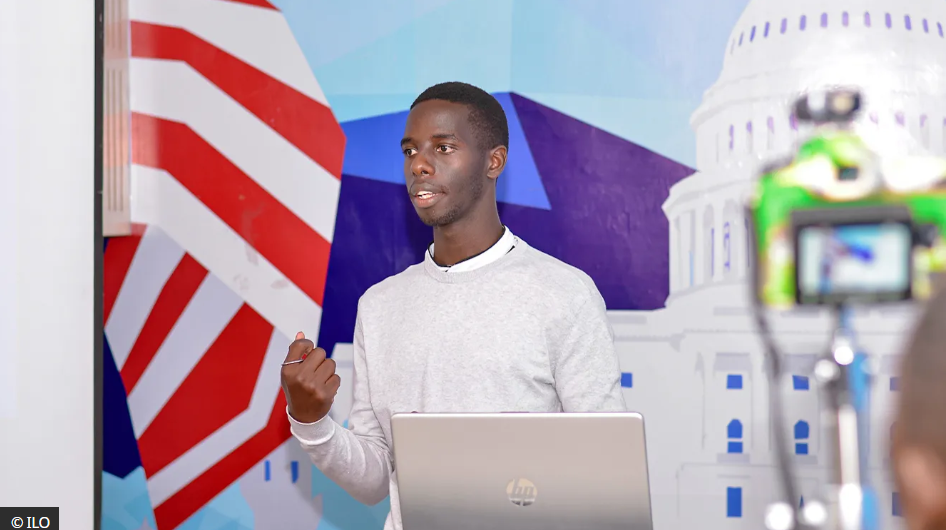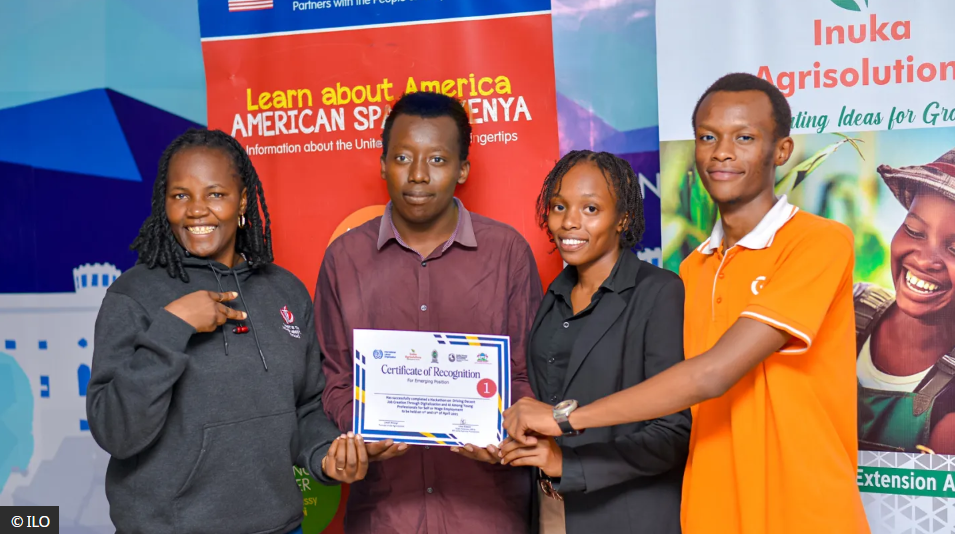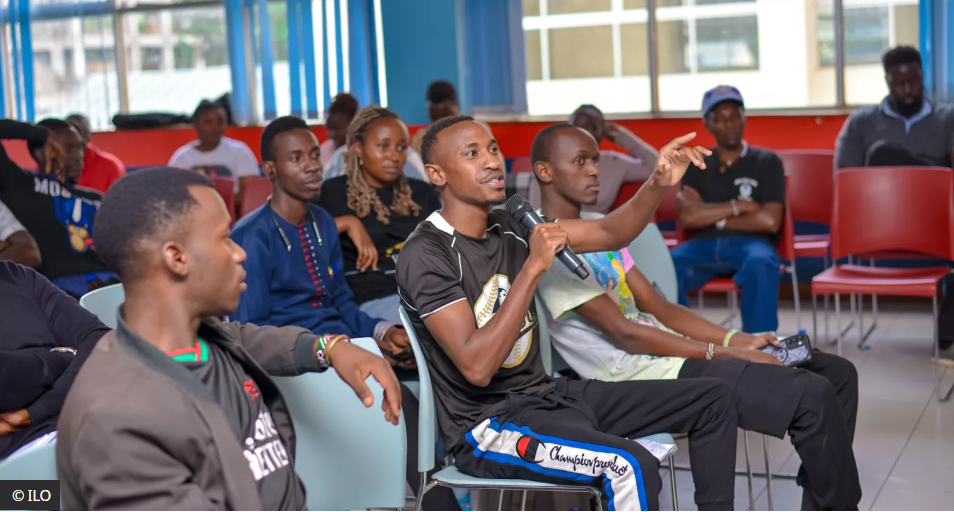
From creating AI-powered tools for smallholder farmers to tackling barriers to online learning, 53 young Kenyans turned innovation into opportunity at a recent ILO-supported hackathon aimed at tackling youth unemployment through digital solutions. Hosted at the American Spaces in Nakuru National Library, the event demonstrated how youth-driven digitalization can drive the creation of decent jobs in Kenya and beyond.
The theme, "Driving decent job creation through digitalisation and AI," wasn’t just printed on a banner. It pulsed through the code, echoed in the presentations, and came alive in the personal stories behind each innovation.
In Kenya, AI is gaining momentum. Local developers are creating chatbots in Kiswahili, AI tools are supporting mobile banking, and students are using machine learning to solve everyday challenges. Examples include Apollo Agriculture, which uses AI to provide credit and agronomic advice to farmers; Zindi, a platform where African youth compete to solve real-world problems using AI; and TIBU Health, which leverages AI to deliver home-based medical care efficiently. Safaricom's Zuri chatbot helps customers manage their accounts. These innovations demonstrate that Kenya is not just catching up, but is also leading in practical and impactful applications of AI. However, its greatest potential may lie in addressing one critical area: youth unemployment.
Innovation in Action
Briton Indakwa, a computer science student at the hackathon, developed Agro-Advisor, a tool to guide small-scale farmers using real-time AI-powered insights. "Farming isn’t just about land anymore," he said. "It’s about data. And this tool gives farmers the edge they need to succeed."

Enock Kipkirui Langat tackled a different gap, the one between education and the job market. Hi solution is an AI-powered adaptive learning that assess each youth’s strengths, weaknesses, and interests and helps youths choose careers that align with market demand. "Too many of us study, but when we finish school, we have no idea where to go next," he said. His AI system helps match youth with real-time job opportunities.
Magdaline Wambui’s project, Learn on the Go, offered solutions to barriers in rural education access. "I grew up watching friends drop out because they couldn’t get to school," she said. Her solution helps students in rural areas access education online. It’s innovation driven by empathy.
Too many of us study, but when we finish school, we have no idea where to go next. My AI system helps match youth with real-time job opportunities.
Enok Kipkurui - Innovator, Rift Valley National Polytechnic.
In their words: "We’re not waiting. We’re building."
There was no shortage of passion in the room. Many participants had never pitched an idea before. Some had never even attended a tech event. But in Nakuru, they found their voice.
Nevil Ingutu, creator of GigStartAI, said it clearly: "Don’t wait to be chosen—use technology to choose yourself."

Yvonne Nabwire Ngachi echoed the spirit of collective ambition. "Everyone should participate," she said. "This is how we build a future that includes all of us."
Another participant captured the sentiment in one sentence: "We’re tired of promises. This is something we can actually build."
Shifts in mindset and confidence
The hackathon wasn’t just about winning. It was about transformation. One student shared, "It gave me confidence. I’ve never pitched before, and now I want to do it again."
"Meeting other people who think like me? That was the real win," said another participant.
For Enock, the experience was a breakthrough: "It gave me support and helped me learn how to use AI in real life."
Don’t wait to be chosen. Use technology to choose yourself. Sometimes you just need a chance, a laptop and Wi-Fi.
Nevil Ingutu - creator of GigStartAI
Momentum for an Inclusive Future

With 53 young participants from 10 institutions in Nakuru, 36 male and 17 female, the event demonstrated both momentum and a need for continued inclusion. The gender gap remains a challenge, but voices like Magdaline’s are paving the way.
AI has the potential to help close gender and pay gaps by automating bias-prone processes and expanding access to flexible, remote jobs—especially for women. According to UNESCO and the World Economic Forum, targeted investment in inclusive AI can help reduce inequalities and expand economic opportunities for women globally.
The Nakuru AI Hackathon was more than an event—it was a statement. Young Kenyans aren’t just dreaming of jobs. They’re designing them. And with the right support, they’re ready to lead the digital economy.
This initiative was made possible through the support of the Public-Private Development Partnerships for Inclusive Decent Employment and Productive Livelihoods (PPDP), which champions youth-driven innovation in alignment with the ILO’s mission of decent work for all.
Original article from ILO


